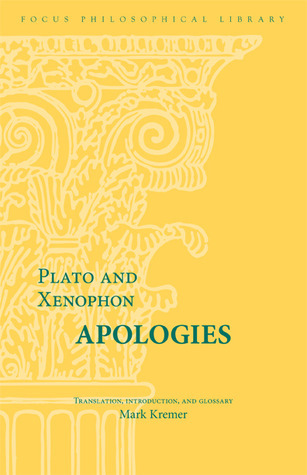

Apologies
These dialogues underscore the limitations of democratic relativism and emphasize the nature of philosophy or the free mind. Plato’s Apology of Socrates is both poetry and an act of reformation, justifying the life of philosophy, challenging the authority of the pagan gods and heroes, and introducing Socrates as a heroic and even divine figure. In contrast, Xenophon’s Socrates is not dialectical and otherworldly, but makes a different appeal for philosophy. From Xenophon emerges the heroic tradition of Plutarch with its reflections on the virtues and vices of great historical men.
Focus Philosophical Library translations are close to and are non-interpretative of the original text, with the notes and a glossary intending to provide the reader with some sense of the terms and the concepts as they were understood by Plato and Xenophon's immediate audience.
Publisher
Focus
Publication Date
1/10/2006
ISBN
9781585101887
Pages
74
Categories
About the Author

Plato's most famous contribution is the theory of forms (or ideas), which has been interpreted as advancing a solution to what is now known as the problem of universals. He was decisively influenced by the pre-Socratic thinkers Pythagoras, Heraclitus, and Parmenides, although much of what is known about them is derived from Plato himself.
Along with his teacher Socrates, and Aristotle, his student, Plato is a central figure in the history of philosophy. Plato's entire body of work is believed to have survived intact for over 2,400 years—unlike that of nearly all of his contemporaries. Although their popularity has fluctuated, they have consistently been read and studied through the ages. Through Neoplatonism, he also greatly influenced both Christian and Islamic philosophy. In modern times, Alfred North Whitehead famously said: "the safest general characterization of the European philosophical tradition is that it consists of a series of footnotes to Plato."